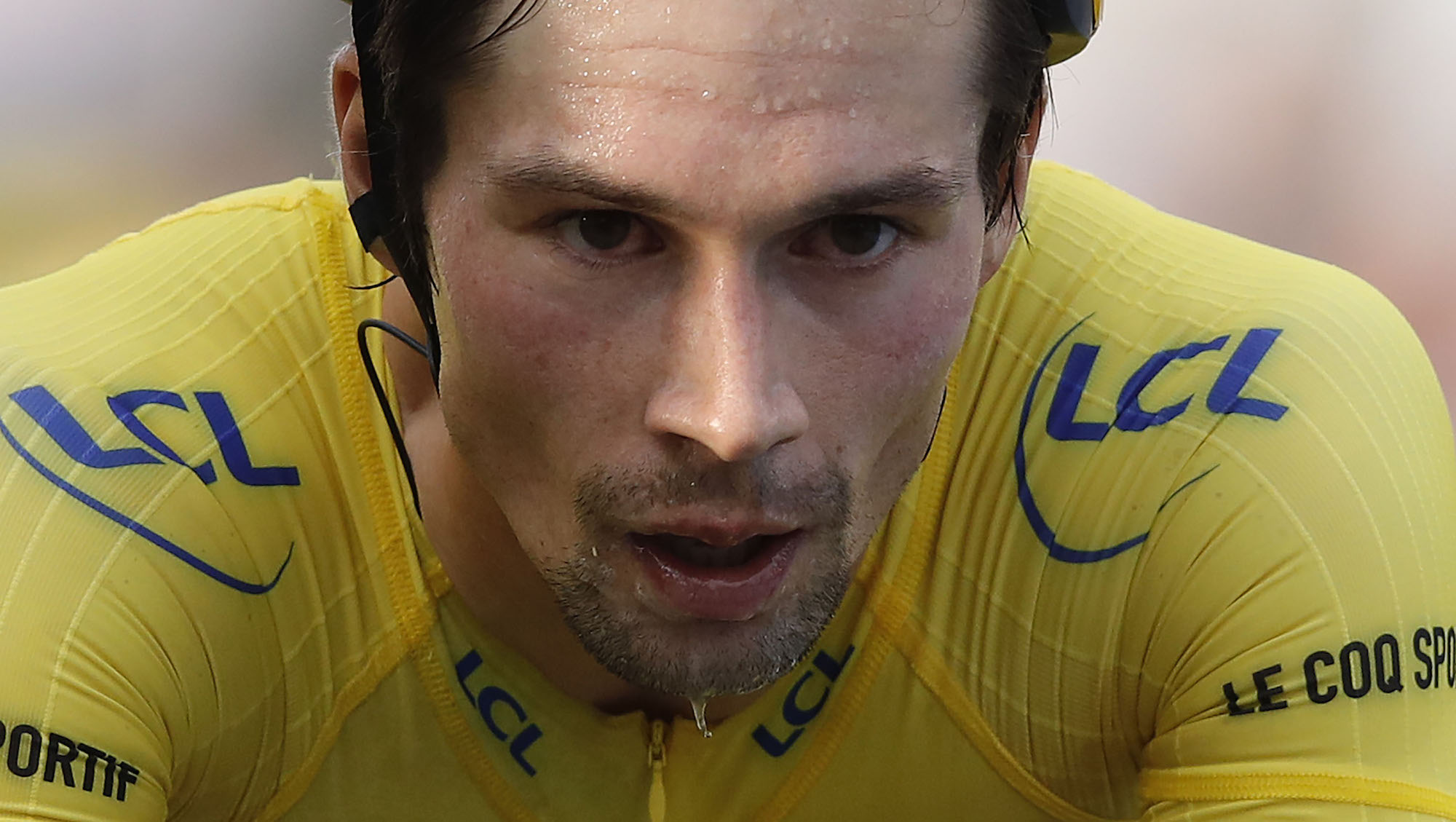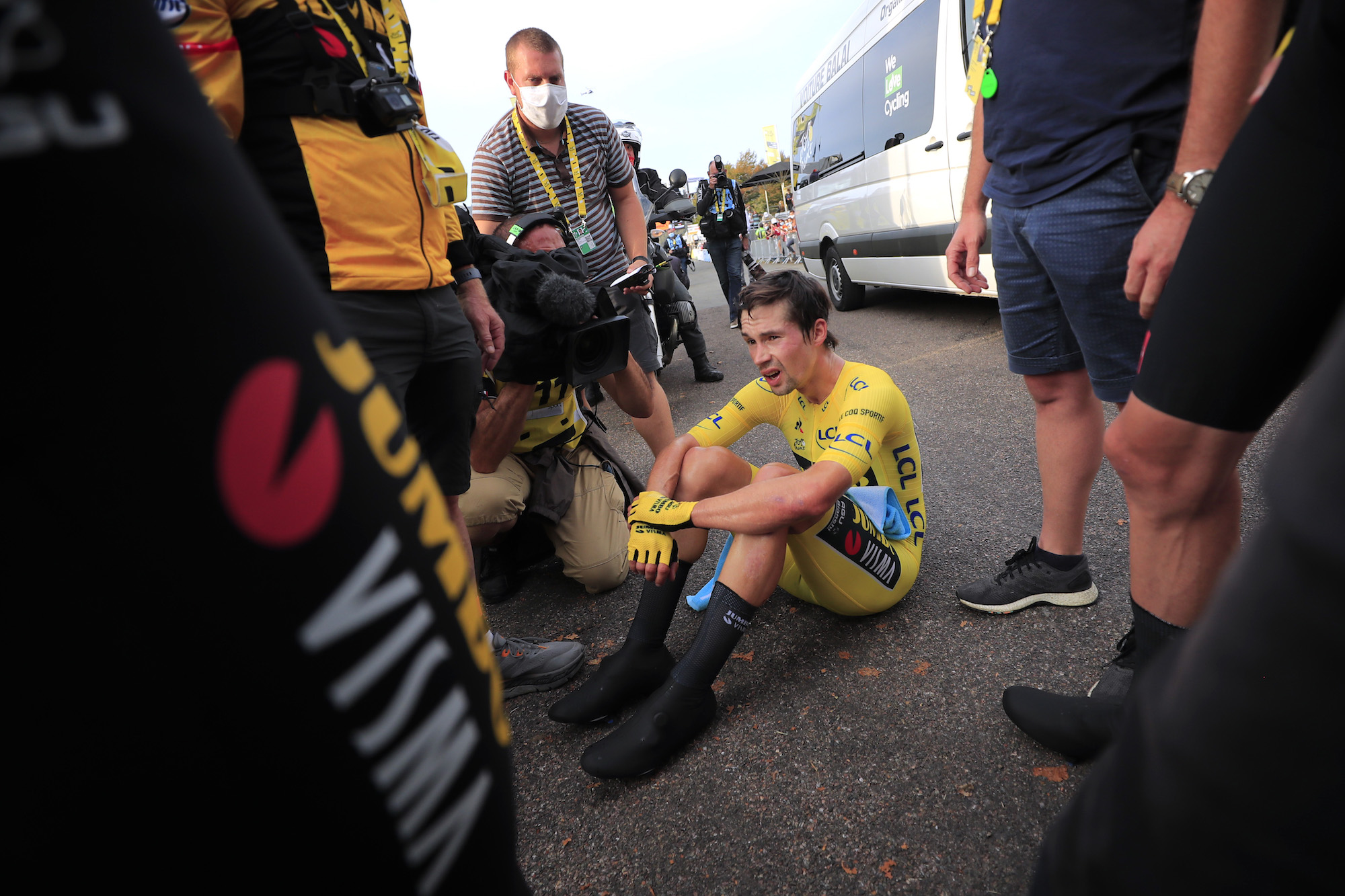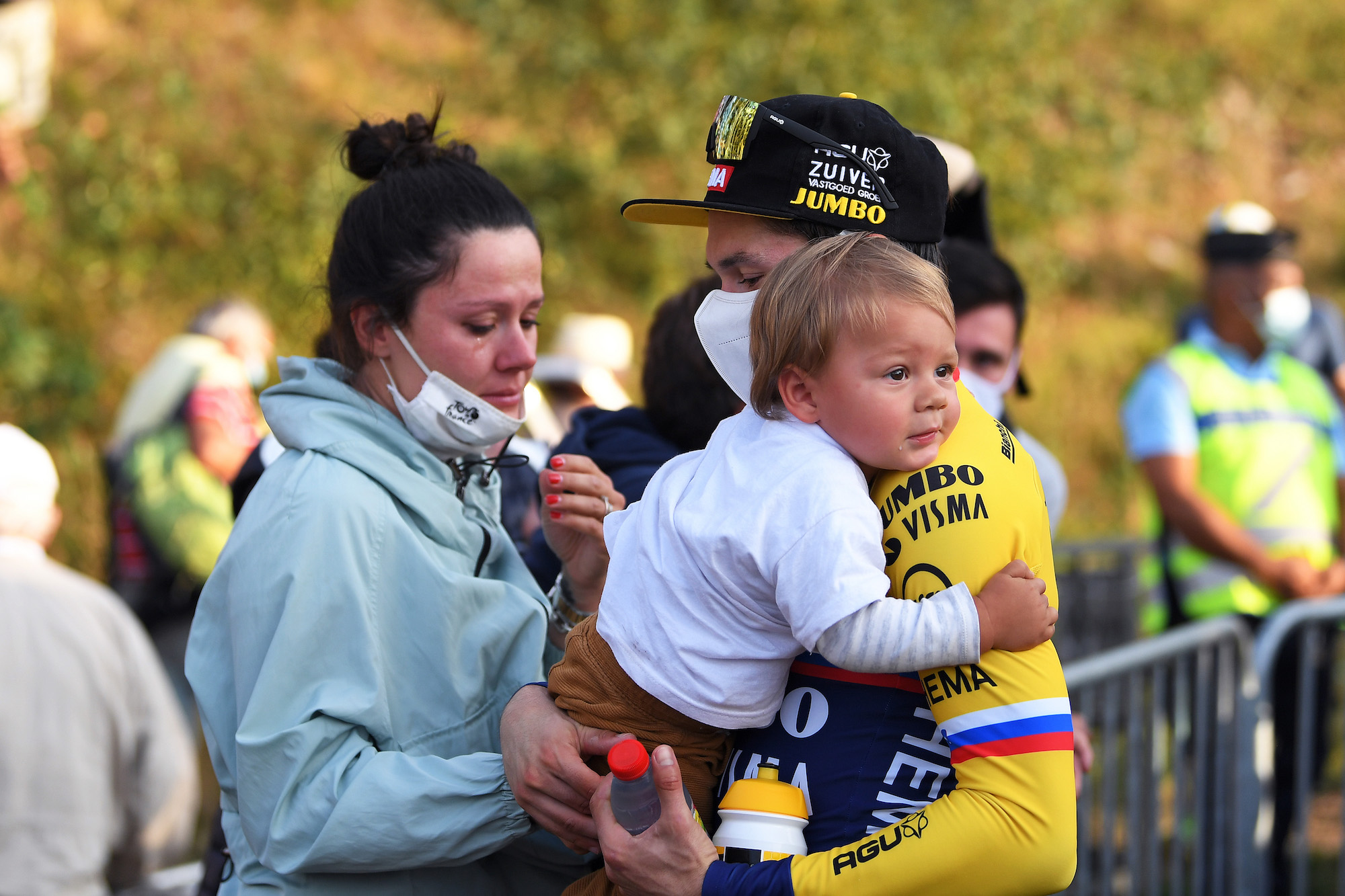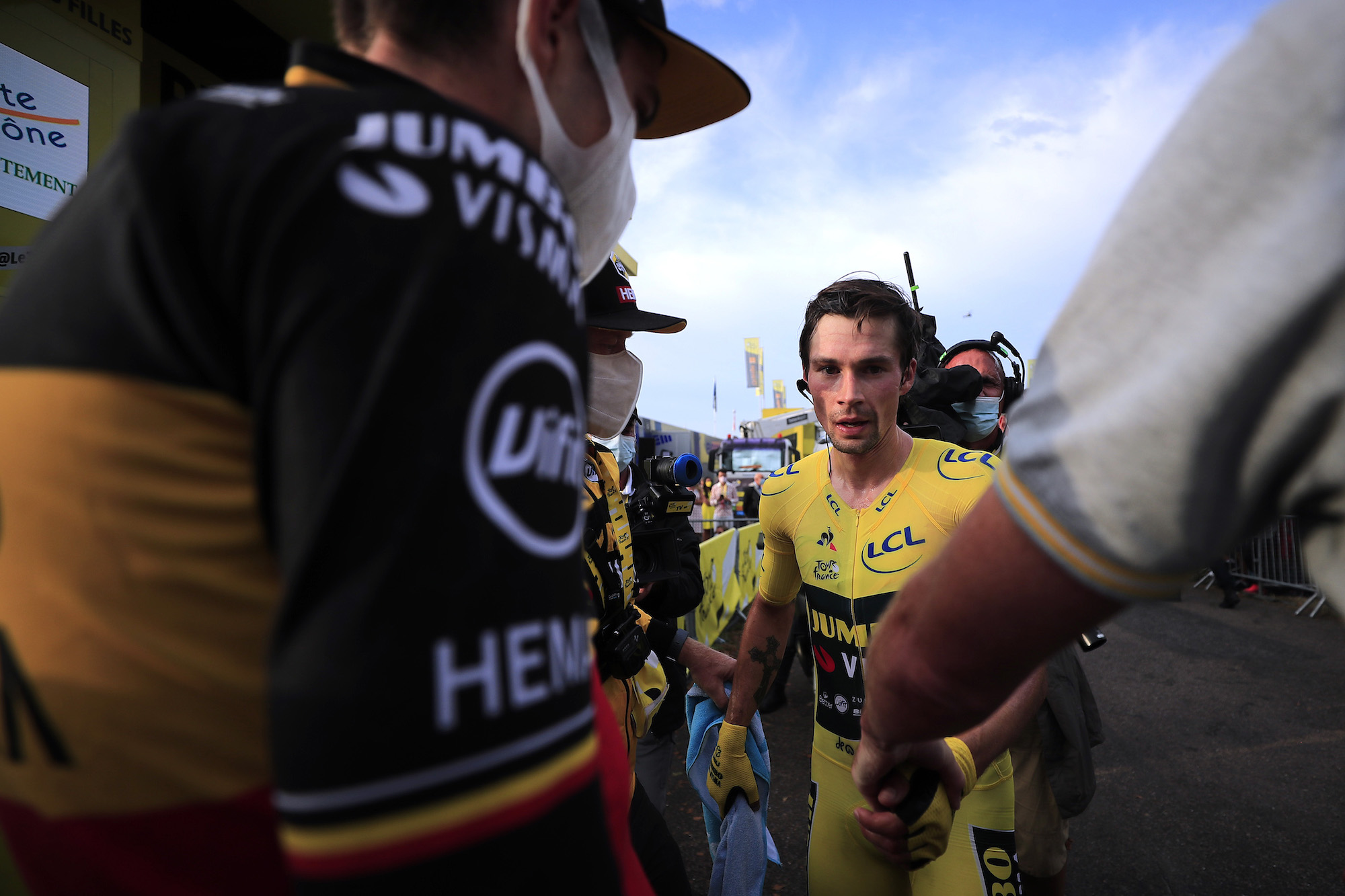'There are two different Primožs': Unmasking Primož Roglič, the man who nearly won the Tour de France
The 30-year-old has successfully written his name into Tour de France history, although he would have hoped the story was slightly different

Primož Roglič during the stage 20 time trial at the 2020 Tour de France (Christopher Ena/POOL/AFP via Getty Images)
The latest race content, interviews, features, reviews and expert buying guides, direct to your inbox!
You are now subscribed
Your newsletter sign-up was successful
"There are two different Primožs.
"One is a cyclist and one is normal Primož."
On the day before the 2020 Tour de France arrived on the Champs-Élysées in Paris, the wider world finally saw both Primož Roglič the cyclist and Primož Roglič the human being.
The Slovenian had seemed almost indestructible over three weeks in France, yet on the stage 20 individual time trial, where Roglič had been expected to put on an assured performance that served only to confirm his victory, he finally proved mortal.
He says we'll have to wait for the full inquest into what happened, whether contributing factors included a physical ailment, equipment malfunction, or if nerves finally penetrated his steely exterior. For now, Roglič's own autopsy of his performance is that he simply didn't have the power to match his younger countryman Tadej Pogačar.

Since taking the yellow jersey on stage nine, it's fair to say Roglič hasn't gone out of his way to endear himself to the public and media. His daily press conferences were kept very much to the point, everything was a "we'll take it day-by-day" or "there's still a long way to Paris" soundbite. While some would argue it's his prerogative to keep the outside world very much on the outside as he attempted to conquer one of sport's toughest competitions, others would argue the race leader of the Tour de France has a duty to share some of himself, to let the people in.
With only a few questions allocated each day, the focus was on the racing, naturally, his view of the then-upcoming mountain stages and how much time he thought he needed to take going into the penultimate time trial stage. When asked the latter, Roglič would always say "every second counts" to muffled groans from journalists, but it turns out he was telling the absolute truth.
The latest race content, interviews, features, reviews and expert buying guides, direct to your inbox!
>>> Tom Dumoulin and Wout van Aert left in shock as Jumbo-Visma’s Tour de France victory evaporates
After a couple of days in yellow, it took a few seconds for someone to kick things off with the first question, Roglič helpfully filling the gap, joking: "Huh, they are already bored of me!"
He was at least a bit aware of how he was coming across, his often clunky English (admittedly better than everyone else's Slovene) and Slavic drawl putting up barriers to communication when Roglič already had enough hurdles to deal with on the bike. It was something getting in the way of him winning.
And there was little love lost for a potential Slovenian Tour de France winner. The western European media looking for a compatriot, or failing that at least a character, to fill their newspapers with. The French public, still drunk from Julian Alaphilippe's 2019 exploits, were mourning the lost hope they placed once again on the bowed shoulders of Thibaut Pinot.
As one journalist put it, Roglič was similar to Novak Djokovic, respected but not loved. The way in which Roglič lost the yellow jersey has likely changed that, cycling loves its losers almost as much as its winners. Whether Roglič cares either way whether he is liked is a different question altogether.
There's one story that when he's out training back in Slovenia, people inevitably come out to join him on the road. You don't get the chance to ride alongside a Vuelta a España winner every day, especially not in Slovenia. Many would have welcomed some temporary company on a long training ride, or at least acknowledged the support from his own people, but Roglič is said to often just ride away up the road. Anything and everything that doesn't help him achieve his goals is merely a distraction.
"There are two different Primož. One is a cyclist and one is normal Primož." These are the words of the mother of Roglič's son, his partner Lora Klinc.

The story of Roglič's transition from ski jumper is well told by now, how in his early twenties he turned up to a cycling club and asked what he needed to do to become a professional cyclist, initially being laughed away before working supermarket shifts to save up for all the equipment he needed. He also has apparently worked as an escalator engineer in the past. Between the ski jumping and his agony and ecstasy at the 2020 Tour, feel free to insert your own joke about Roglič being well-versed in ups and downs at this juncture.
"You cannot just put everything into one basket," Klinc says of watching Roglič work his way up to becoming a Grand Tour contender, and the internalised pressure from trying to fulfill these lofty goals inevitably puts on a person. "Sometimes he's a little cold and distanced. But in normal life he's different. He's warmer and nice. He's really relaxed.
"He quit ski jumping because he realised he wouldn't be the best in the world. I think that's his main goal, he likes winning."
In the aftermath of his shock loss, we saw Roglič the human. Finding Pogačar during his television interview, the youngster still trying to come to terms with what had just happened, the interview was interrupted. Hugs and congratulations were given to his friend - this act captured for the world to see.
Entering the press room an hour later for his press conference, it was the first time we'd seen Roglič wearing something other than a cycling jersey for the past three weeks, the comfortable black Jumbo-Visma sweatshirt a sign that the fight was now over.
Now, Roglič could relax a little, his eyes watering only enough so that you had to keep looking, checking the emotion was there, bubbling away under the surface.

'When all the cameras are no longer here, when all these people are no longer bothering you, is that when you will be emotional, maybe those closest to you will see how you really feel about what happened today?'
"I will cry, I did already," Roglič admitted. "It's not really what I wanted. I was really emotional about it. It was how it was. I would have wanted it to be a little different but I cannot change it. I just need to go on. It's like that."
Close, or at least closer, to reaching under the skin of Roglič and how he feels. "It's like that" has been another phrase the Slovenian has often turned to throughout the Tour. There is a peace he finds in the way things eventually turn out, as if their configuration has always been set and unchangeable. Maybe that explains the lack of visible collapse in the aftermath of a most brutal defeat.
"I need to take some time off and think more clearly about it and what to do next."
Roglič has had 10 minutes of questioning as to why and how he lost, and there's one more before he is set free.
'What about the helmet Primož? It was a different helmet you were wearing today? What was it?'
"Obviously it was not so good, huh?"
The room erupts with laughter. Not many would have seen the final order of the podium in Paris coming a few hours earlier, but even less would have believed Roglič would be presiding over his own comedy special.
"Let's leave all the materials and everything, like I said, if you push something more I think you can always go faster, let's keep it like that."
Alex Roos, a French writer almost permanently positioned outside the Tour de France press room smoking a cigarette, summed it up pretty well in L’Equipe this morning.
"For three weeks we’d accused Roglič of being as engaging as a refrigerator," he wrote, in the way only French people with lungs full of tobacco can. "And now, suddenly, his heart lay bare, he became relatable, and yet he made us want to cry as he sunk."
Roglič had been asked after stage 18, when his yellow jersey looked certain, to tell us more about who is Primož Roglič.
"Hopefully, as a good bike racer now, but also as a nice person, I think that is the most important thing. Hopefully, I'm also nice to everyone and people will like me." The question had flustered him slightly, almost blushing.
A year where both humanity's fragility and robustness have been laid bare, Roglič provided his own interpretation at this year's Tour de France. When we were watching his unbreathing dominance in the mountains, it was impossible to enjoy the robotic dominance of such a beautiful race. He had to lose the Tour to win hearts.
Whether Roglič had won or lost, what he did next would likely be the same. Months of figuring out how he can go faster. For him, it's always about going faster. This September, he just wasn't fast enough.
Jonny was Cycling Weekly's Weekend Editor until 2022.
I like writing offbeat features and eating too much bread when working out on the road at bike races.
Before joining Cycling Weekly I worked at The Tab and I've also written for Vice, Time Out, and worked freelance for The Telegraph (I know, but I needed the money at the time so let me live).
I also worked for ITV Cycling between 2011-2018 on their Tour de France and Vuelta a España coverage. Sometimes I'd be helping the producers make the programme and other times I'd be getting the lunches. Just in case you were wondering - Phil Liggett and Paul Sherwen had the same ham sandwich every day, it was great.